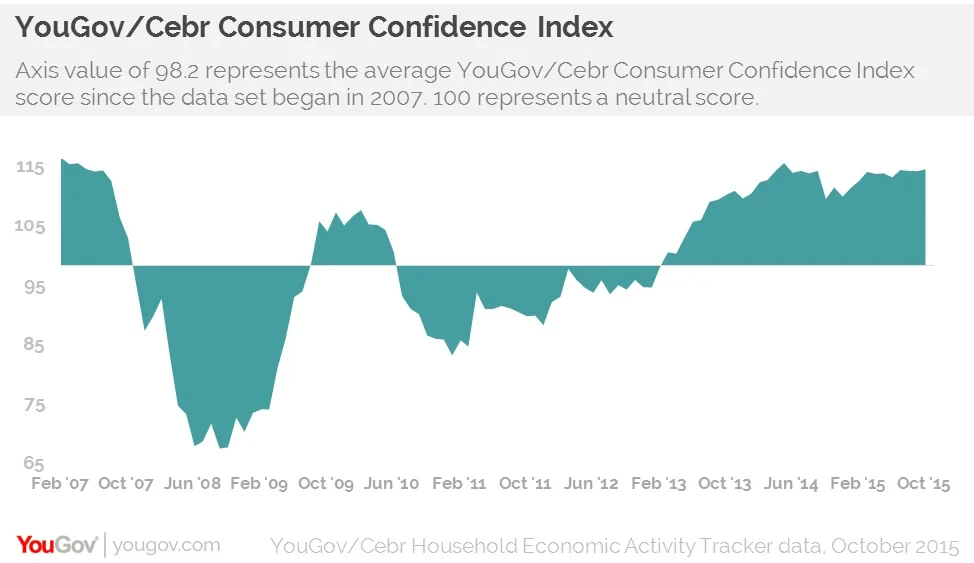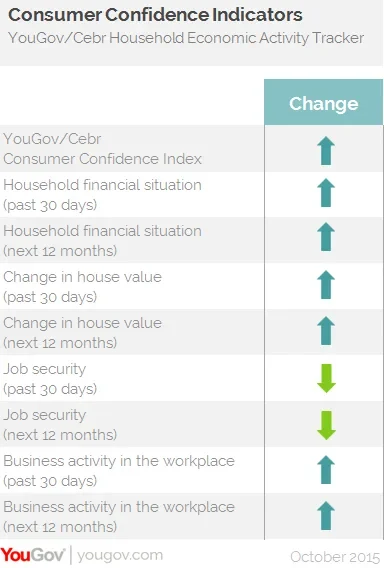Both backward and forward-looking house price measures hit highest mark since September 2014
Six of eight consumer confidence measures improve in October
But job security falls as workers are increasingly anxious about employment prospects

UK consumer confidence has returned to a level not seen since May 2014, new research from data company YouGov and the Centre for Economics and Business Research shows.
The figures for October show that the YouGov/Cebr Consumer Confidence Index increased by 0.4 points in the last month to 114.4 – its highest score since May 2014 when it was 115.4. October’s figures are the high water mark for 2015 and are the result of a gradual improvement in consumer confidence over the past four months.

The overall increase in consumer confidence comes as six of the eight measures that comprise the index have improved in October. The biggest increases came in homeowners’ experience of property prices over the past 30 days and their expectations over the coming 12 months. Both of these measures recorded their highest scores since September 2014 and point to a buoyant property market.
The improvement in consumer confidence was also aided by improvements in the backward and forward-looking household finances and business activity in the workplace measures.
However, despite these increases, many workers are feeling a growing sense of uncertainty over their employment prospects. How they feel about their job security over the previous 30 days has fallen for the second consecutive month. Similarly, how they feel about their employment status over the coming year has fallen by its largest month-on-month amount since July 2013.
Stephen Harmston, Head of YouGov Reports: “The rise in consumer confidence this month is driven largely by homeowners’ mood over swelling property prices. However, while economic optimism is creeping up, it is not all good news. Rising house values cut both ways – benefitting sellers but increasingly sucking up more money from buyers. Furthermore, as the job security figures show, many consumers still have a sense that the recovery is built on sand and that growth will come crashing down when faced with a stiff breeze – as we recently saw following the Chinese market jitters. Seven years after the crash, a lot of people are still in a recession mind set – both as consumers and as workers.”
Scott Corfe, Associate Director at the Centre for Economics and Business Research: “With six of the eight consumer confidence measures increasing these figures should lead to cheers in the Treasury and the City. However, many consumers think there is trouble ahead – something backed up by this week’s relatively soft GDP figures. The biggest fall in October comes in workers’ job security over the coming 12 months which fell by its greatest amount since July 2013. It is clear that while a lot of the big economic data point to rising wages and more jobs, the man on the street may not see it that way. As recent events in the North East and Humber show, in the post-financial crisis economy many industries are dying out and ‘jobs for life’ no longer exist.”
See more information about the Household Economic Activity Tracker
More information about YouGov Reports
Image from PA










